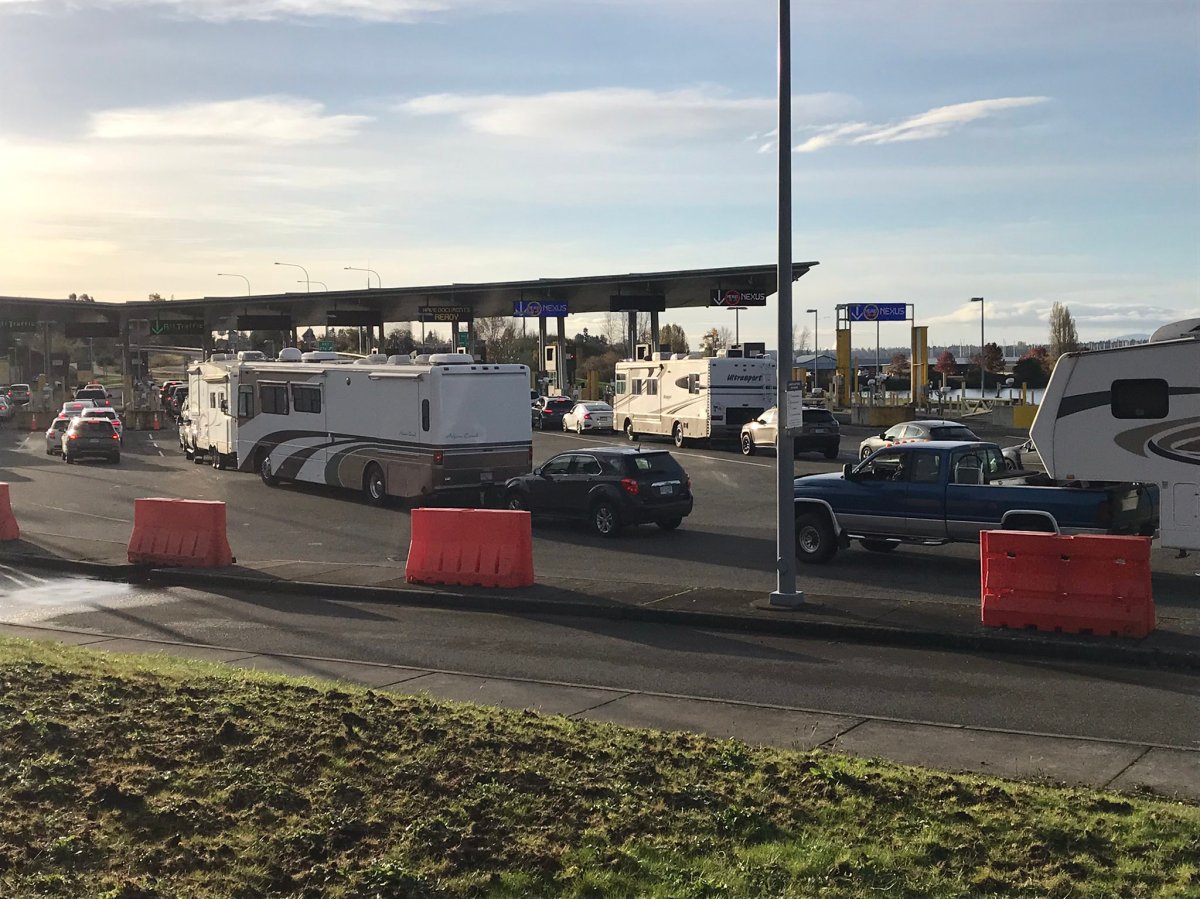After a closure lasting nearly 20 months, the Canada-U.S. land border has re-opened to non-essential travel.

But while there is a huge pent-up demand for cross-border trips, there is still a lot of confusion and frustration over the COVID-19 testing protocols now in place.

Global News caught up with several people heading across the border into the U.S. Sunday night and Monday morning.
Few were going just for the day. Campers and RVs were lined up, heading to warmer U.S. states for the winter.
Travellers told Global News they were off to Arizona, California and Mexico.
Beginning Nov. 8, all ports of entry into the U.S., including ferries, will allow non-essential travellers, such as tourists, if they are fully vaccinated.

Get daily National news
To be considered fully vaccinated, 14 days must pass after either a second dose of a COVID-19 vaccine or after a one-dose vaccine, namely the Johnson & Johnson/Janssen vaccine.

The U.S. will accept all vaccines approved by the U.S. Food and Drug Administration and those given Emergency Use Listing by the World Health Organization.
That includes COVID-19 vaccines from Pfizer/BioNTech, Moderna, AstraZeneca and Covishield.
The U.S. will also accept mixed doses of approved vaccines from different manufacturers, as long as they were taken at least 17 days apart.
While a negative COVID-19 test is not required to cross the border into the U.S., the same does not apply when returning to Canada.
Canada requires a negative polymerase chain reaction (PCR) test taken within 72 hours of the border crossing to enter the country for all travellers five years of age or older. Other tests that will be accepted include a nucleic acid test (NAT), nucleic acid amplification test (NAATs) or reverse transcription loop-mediated isothermal amplification (RT-LAMP).
These tests use methods such as a nasopharyngeal (NP) swab, nose swab, or saliva sample.

Last Friday, Canada’s top medical officer, Dr. Teresa Tam, said the PCR test requirement should be reviewed but she did not give any indication when they might happen.
White Rock resident Kelvin Brown has been waiting patiently to pick up parcels in Blaine, Washington.
“I would just like to drive 30 seconds into Blaine, about a quarter of a mile, pick up some parcels that have been sitting there since March 2020,” he told Global News.
—With files from Emily Lazatin and Eric Stober








Comments